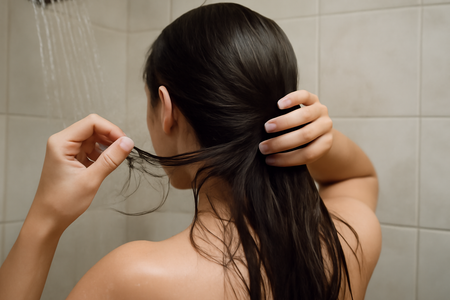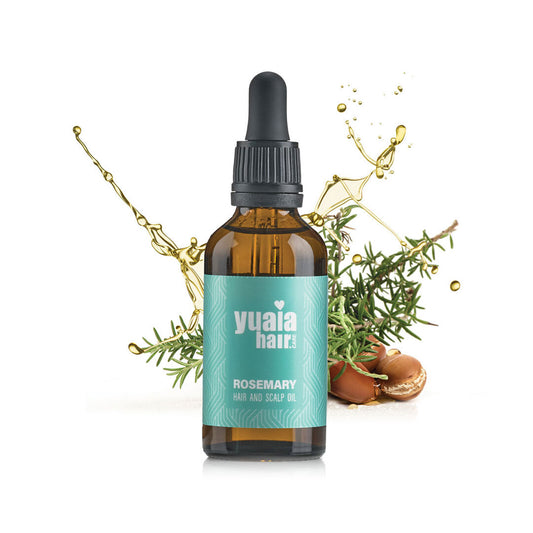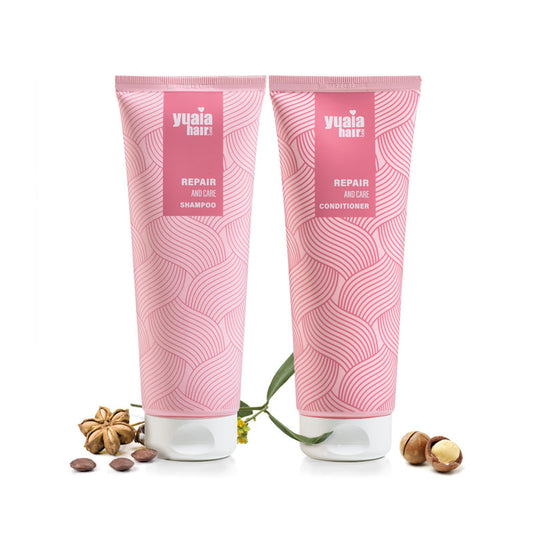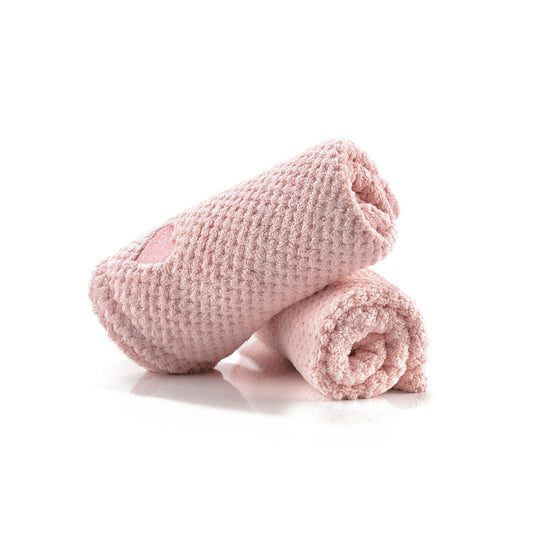
Breakage Versus Hair Loss: What’s Really Happening?
It's important to note that while hard water is not directly associated with hair loss from the follicle, it can lead to breakage that mimics thinning. The minerals in hard water weaken the hair shaft, making it more prone to breakage, which can create the illusion of hair loss. This blog post aims to delve into the effects of hard water on hair and provide practical solutions to manage and prevent damage.
What is Hard Water?
Hard water is water that contains high concentrations of minerals, primarily calcium and magnesium. These minerals can accumulate on the hair, forming a layer that affects its texture and appearance. Over time, this buildup can lead to a host of hair issues, altering its natural sheen and making it more prone to breakage.
How Does Hard Water Affect Hair Structure?
The presence of mineral deposits from hard water can significantly impact hair health. As these minerals build up on the hair, they can lead to increased dryness and dullness, making it difficult for the hair to retain moisture. This lack of moisture results in tangling and a rough texture, ultimately increasing the likelihood of breakage and split ends. Scientific studies have demonstrated that repeated exposure to hard water can lead to decreased hair thickness and surface irregularities, further exacerbating these issues.
Greater Impact on Already Damaged Hair
Hair that has been chemically treated or is already damaged is particularly vulnerable to the effects of hard water. The mineral buildup from hard water can exacerbate existing weaknesses in the hair shaft, making it even more susceptible to breakage. For those with chemically treated hair, the impact of hard water can be more pronounced, as the hair is already in a compromised state.
To help manage the effects of hard water, consider incorporating our Rosemary Hair Oil into your routine. This product is formulated to nourish and strengthen hair, providing essential moisture that combats dryness and brittleness caused by mineral buildup. Regular use can help restore your hair's natural luster and resilience, making it an excellent addition to your hair care arsenal.
Preventing and Managing Hard Water Damage
To protect your hair from the adverse effects of hard water, there are several strategies you can adopt. One effective approach is the use of clarifying or chelating shampoos, which are formulated to remove mineral buildup from the hair. These shampoos can help restore your hair's natural shine and softness by eliminating the residue left by hard water.
Another practical solution is the installation of water softeners or filters. These devices work by reducing the mineral content in your water, making it gentler on your hair. By using softened water, you can prevent the accumulation of minerals that lead to dryness and brittleness.
In addition to these measures, it's important to regularly use moisturizing and repairing hair products to combat the dryness caused by hard water.
Embrace Healthier Hair Habits
Adopting a holistic approach to hair care is essential, especially for those living in areas with hard water. This involves considering both external factors, such as water quality, and internal factors related to overall hair health. By using regular treatments and protective measures, you can maintain your hair's integrity and minimize the impact of mineral buildup.
Simple habits like using a microfiber towel to gently dry your hair can also make a difference. These towels are made to reduce friction and prevent further damage to your hair's cuticle, helping to keep it smooth and manageable.
Frequently Asked Questions
Can Hard Water Make My Hair Fall Out?
While hard water can lead to hair breakage, it does not cause hair to fall out from the root. The breakage can mimic hair thinning, but the follicles remain intact.
What Are the Signs That Hard Water is Affecting My Hair?
Common signs include increased dryness, tangling, and brittleness. If you notice these symptoms, it may be time to consider solutions for hard water damage.
How Can I Tell if I Have Hard Water at Home?
You can test for hard water using water testing kits available in stores or online. Additionally, observing mineral deposits on fixtures is a simple way to identify hard water.
Are There Any Natural Remedies for Hard Water Hair Damage?
Natural oils and regular deep conditioning treatments can help restore moisture and strength to hair affected by hard water. These remedies can be effective in maintaining healthy hair.
 2-4 day UK delivery
2-4 day UK delivery
 25.000+ satisfied customers
25.000+ satisfied customers
 Satisfaction Guarantee
Satisfaction Guarantee





























